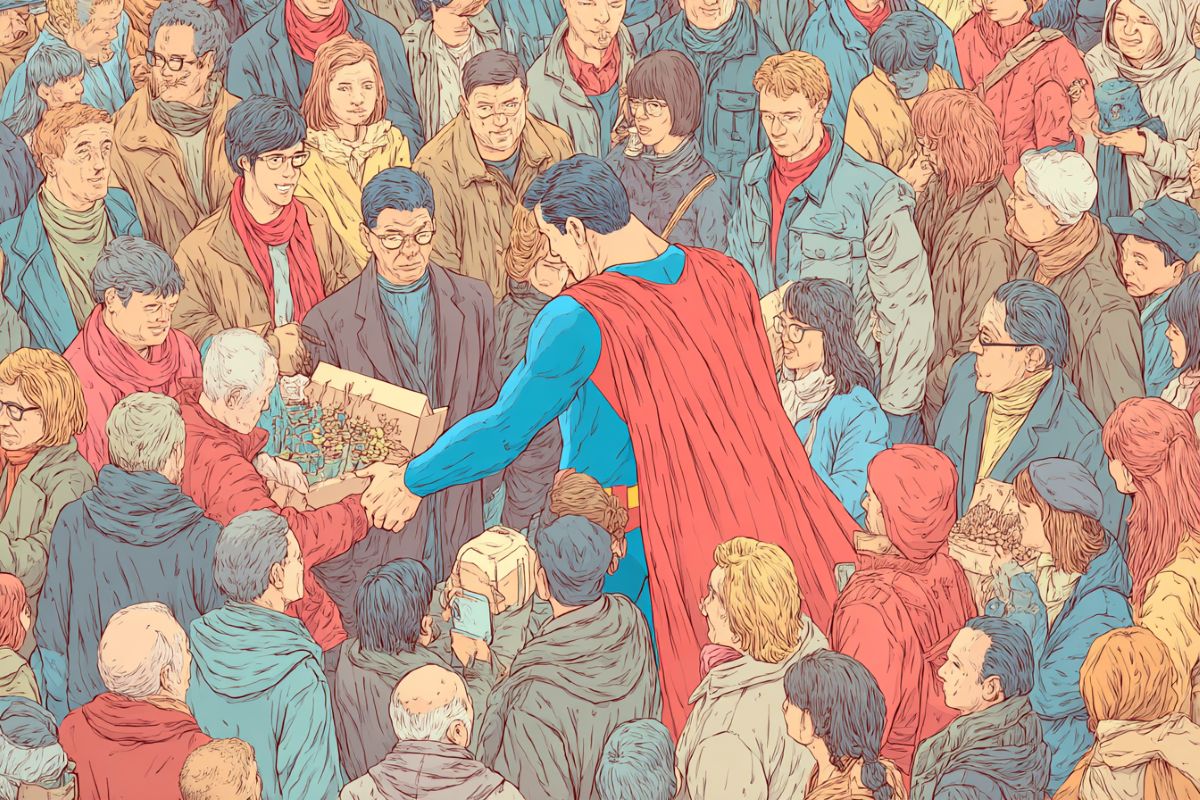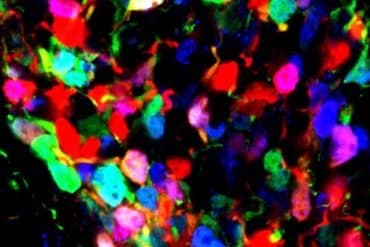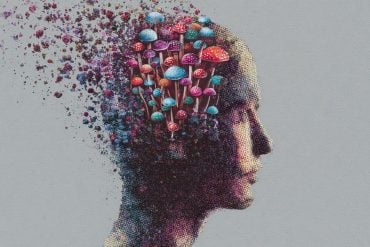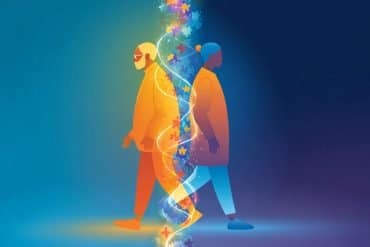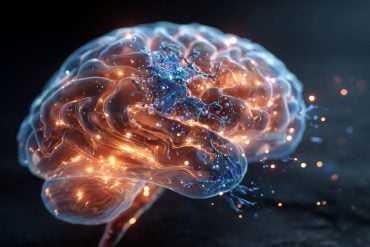Summary: A new behavioral study demonstrates that sudden, unexpected events can significantly increase altruistic behavior in everyday environments. When a person dressed as Batman appeared on a Milan subway, passengers were nearly twice as likely to give up their seats to a pregnant woman compared to the normal routine condition.
Surprisingly, many who acted generously did not consciously notice Batman, suggesting the effect operates beneath awareness. The findings highlight how novelty interruptions may boost present-moment attention and activate prosocial norms without requiring deliberate mindfulness practices.
Key Facts:
- Unexpected Boost: Prosocial behavior jumped from 37.66% to 67.21% when Batman appeared.
- Unconscious Influence: 44% who offered their seats did not recall seeing Batman.
- Attention Shift Mechanism: Novel, unpredictable events appear to heighten awareness and activate helping tendencies.
Source: Universita Cattolica del Sacro Cuore
If ‘Batman’ appears on the scene, we immediately become more altruistic: in fact, research conducted by psychologists from the Università Cattolica del Sacro Cuore, Milan, shows that the sudden appearance of something unexpected—Batman—disrupts the predictability of everyday life and forces people to be present, breaking free from autopilot.
The study was published in the journal “npj mental health research,” a Nature publication, and was led by Francesco Pagnini, Full Professor of Clinical Psychology at the Faculty of Psychology, Università Cattolica.
Prosocial behavior, or the act of helping others, is essential to social life, yet the spontaneous environmental factors that trigger such behavior remain little explored.
This study tested the ability of an unexpected event, such as the presence of a person dressed as Batman, to increase prosocial behavior by interrupting routines and increasing people’s attention to the present moment.
“We conducted an experimental field study on the Milan subway,” Professor Pagnini explains, “observing the behavior of 138 passengers. In the first part of our test (control condition), an experimenter, apparently pregnant, boarded the train with an observer.” The experts assessed the passengers’ tendency to give up their seats for the pregnant woman.
In the experimental condition, another experimenter dressed as Batman entered the scene from another door of the train. Faced with this unexpected encounter, passengers were significantly more likely to offer their seats: 67.21% of passengers offered their seats in the presence of Batman, or more than two out of three, compared to 37.66% in the control experiment, or just over one out of three.
Furthermore, the professor notes, 44% of those who offered their seats in the experimental condition reported not having seen Batman.
These results suggest that unexpected events can promote prosociality, even in the absence of awareness, with implications for encouraging kindness in public settings.
“Our findings,” he explains, “are similar to those of previous research linking present-moment awareness (mindfulness) to greater prosociality; this may create a context in which individuals become more attuned to social cues.
However, Professor Pagnini adds, “unlike traditional mindfulness interventions that require active engagement, this study highlights how situational interruptions alone may be sufficient to produce similar effects.
“This suggests a potential mechanism through which novelty and unpredictability promote prosocial behavior, strengthening theories linking attentional shifts to increased social responsiveness.
“Finally, it is also possible that the superhero figure enhanced the relevance of cultural values, gender roles, and norms of chivalrous help, consistent with research on the ‘priming’ effect associated with superheroes: the figure of Batman,” he concludes, “could therefore play a prosocial priming role.”
Key Questions Answered:
A: It disrupts routine, increases present-moment awareness, and boosts helping behavior.
A: No — nearly half who acted kindly did not report seeing Batman.
A: Novelty and unpredictability heighten attention, triggering greater responsiveness to social cues.
Editorial Notes:
- This article was edited by a Neuroscience News editor.
- Journal paper reviewed in full.
- Additional context added by our staff.
About this altruism and social neuroscience research news
Author: Nicola Cerbino
Source: Universita Cattolica del Sacro Cuore
Contact: Nicola Cerbino – Universita Cattolica del Sacro Cuore
Image: The image is credited to Neuroscience News
Original Research: Open access.
“Unexpected events and prosocial behavior: the Batman effect” by Francesco Pagnini et al. npj Mental Health Research
Abstract
Unexpected events and prosocial behavior: the Batman effect
Prosocial behavior, the act of helping others, is essential to social life, yet spontaneous environmental triggers for such behavior remain underexplored.
This study tested whether an unexpected event, such as the presence of a person dressed as Batman, could increase prosocial behavior by disrupting routine and enhancing attention to the present moment.
We conducted a quasi-experimental field study on the Milan metro, observing 138 rides. In the control condition, a female experimenter, appearing pregnant, boarded the train with an observer. In the experimental condition, an additional experimenter dressed as Batman entered from another door.
Passengers were significantly more likely to offer their seat when Batman was present (67.21% vs. 37.66%, OR = 3.393, p < 0.001). Notably, 44% of those who offered their seat in the experimental condition reported not seeing Batman.
These findings suggest that unexpected events can promote prosociality, even without conscious awareness, with implications for encouraging kindness in public settings.
Trial registration: ClinicalTrials.gov n° NCT06481748; registered on July 1, 2024.


